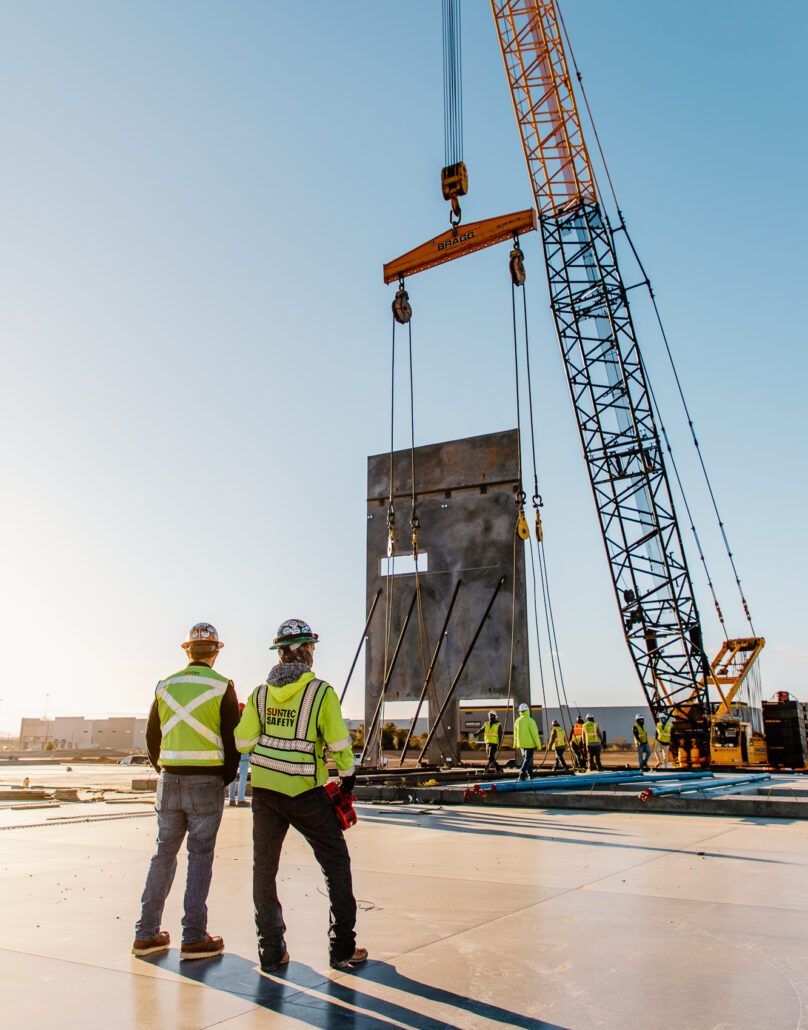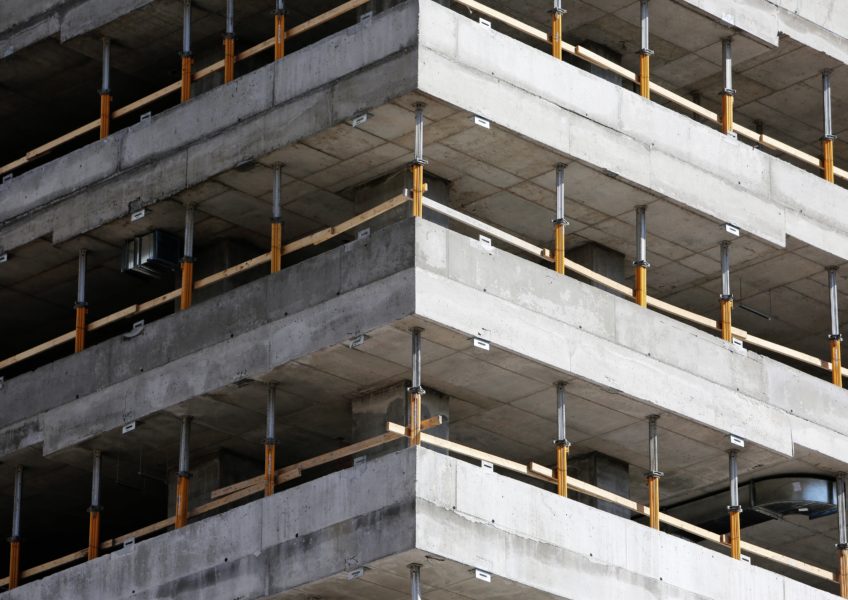The Essential Function of Concrete Structure in Structural Integrity and Longevity
When it concerns constructing a property, the foundation is a lot more important than you may believe. Concrete foundations provide unparalleled strength and longevity, ensuring your structure can withstand numerous ecological difficulties. Without a solid base, you take the chance of potential issues like shifting or fracturing, which can endanger safety and value. Recognizing the subtleties of concrete structures can be the secret to maintaining your financial investment for years to find. So, what should you take into consideration following?
Understanding the Importance of Concrete Foundations
Concrete structures are vital to the total stability of any type of framework, as they supply the vital assistance needed to hold up against numerous lots and ecological conditions. When you think of building a home or a commercial area, the structure is the first point you should take into consideration. It acts as an obstacle against dampness, securing your property from water damage. A well-placed concrete foundation likewise stops settling and moving, which can lead to fractures in wall surfaces and floorings. You'll wish to guarantee that the structure is properly made and strengthened, as this affects the long life of your building. Additionally, a solid foundation can boost power efficiency by minimizing air leakages. Keep in mind, ignoring the relevance of a concrete structure can lead to expensive repair work down the line. So, buying a quality foundation upfront is essential for the integrity and longevity of your structure.
Benefits of Concrete Structures for Structural Honesty
While several variables add to a building's architectural integrity, concrete structures provide unrivaled resilience and toughness. You'll value that concrete can endure extreme weather, resisting both moisture and temperature fluctuations. This resilience means your framework is much less most likely to experience splitting or shifting with time, which can jeopardize its safety.Additionally, concrete's integral weight supplies a strong base, preventing activity during natural events like earthquakes or floodings. When you pick a concrete structure, you're also opting for low maintenance; unlike wood, it won't rot or bring in insects, conserving you time and money in repairs.Moreover, concrete's fire resistance offers included safety, ensuring your structure can endure heats without significant damages. In general, buying a concrete structure implies you're focusing on the long-term security and honesty of your building, making it a smart selection for any type of building project.
Typical Kinds of Concrete Foundations
When it concerns building foundations, comprehending the common kinds of concrete foundations can help you make informed choices for your project. One of the most widespread kinds consist of slab-on-grade, crawl space, and complete cellar foundations.A slab-on-grade structure is a simple, cost-effective alternative, where a thick concrete piece is poured directly on the ground. This type functions well in warm environments, as it reduces heat loss.Crawl room foundations boost the home somewhat over ground, permitting air flow and access to pipes and electrical systems. This layout can aid avoid dampness issues.Full basement foundations offer extra living or storage space while giving outstanding architectural support. They require more excavation and are generally used in chillier environments to prevent frost heave.
Variables to Think About When Creating a Concrete Foundation

Ideal Practices for Putting Up Concrete Foundations
When you're installing a concrete foundation, appropriate site preparation is necessary to ensure stability (West Coast General Engineering concrete foundation Rancho Cucamonga). You'll also require to understand reinforcement methods to improve toughness and resilience. Do not neglect the healing procedure, as it plays an essential function in accomplishing a solid foundation.
Website Preparation Value
Although it might seem straightforward, correct site preparation is important for guaranteeing a solid and long lasting concrete foundation. Begin by clearing the location of any type of particles, plants, or organic product that might compromise the foundation's honesty. Next off, examine the soil kind and compaction; you might require to excavate or include materials to develop a steady base. Degree the ground to ensure also weight distribution and stay clear of clearing up issues in the future. Installing appropriate drainage systems is likewise important to protect against water build-up, which can damage the foundation with time. Lastly, define the foundation's measurements accurately to assist the pouring process. By adhering to these steps, you'll establish the phase for a successful concrete foundation that stands the examination of time.
Support Techniques Described
Once the site is appropriately prepared, the following step in ensuring a tough concrete foundation includes carrying out reliable reinforcement methods. You must begin by making use of steel rebar, which offers tensile stamina and aids protect against breaking. Lay the rebar in a grid pattern, concrete power screed seeing to it it rises making use of spacers to keep proper coverage. Furthermore, think about making use of cord mesh for added assistance, especially in areas subject to heavy loads. Don't fail to remember to connect the rebar crossways safely with cable. For bigger structures, fiber support can improve longevity, reducing the risk of shrinkage cracks. Always follow local building ordinance and standards to make certain conformity. By using these support methods, you'll substantially enhance your structure's stamina and durability, laying a solid groundwork for your structure.
Healing Refine Basics
To ensure your concrete foundation cures properly, it is very important to maintain ample dampness and temperature level conditions instantly after pouring. Beginning by covering the surface area with a wet burlap or plastic bed linen to maintain wetness. This keeps the concrete moisturized, stopping fractures and guaranteeing toughness. You need to likewise monitor the temperature level; suitable treating conditions are in between 50 ° F and 90 ° F. If it's as well warm, haze the surface regularly to avoid fast evaporation. For cool weather condition, consider making use of protecting coverings to preserve heat. Go for a curing duration of at the very least 7 days, as this is important for optimum stamina development. By adhering to these best techniques, you'll improve your structure's sturdiness and longevity, making sure structural honesty for many years ahead.
Maintenance of Concrete Structures for Longevity
To maintain your concrete structure strong and long-term, regular examinations are important. You need to also icf construction ensure reliable drain options are in location to avoid water damage. If you identify any fractures, resolving them promptly will save you from larger troubles down the line.

Normal Examinations and Evaluations
While regular examinations and assessments may look like a duty, they're essential for maintaining the stability of your concrete structure. By regularly examining for splits, shifts, or indications of wear, you can catch prospective problems prior to they rise into costly repairs. Search for any type of water merging around the foundation or unusual settling, as these can signify underlying troubles. It's also important to monitor any changes in your home's structure, like doors that stick or windows that do not open smoothly. Keeping a record of your examinations assists track adjustments in time, enabling aggressive maintenance. Ultimately, these evaluations guarantee your foundation remains stable, supporting the longevity and safety and security of your entire framework. Don't neglect this important aspect of homeownership!
Efficient Drainage Solutions
Normal inspections can disclose problems like drain issues that could compromise your concrete foundation's security. To protect against water build-up, guarantee your rain gutters and downspouts direct water far from the structure. Installing French drains pipes can successfully reroute surface area and groundwater, lowering stress on your foundation wall surfaces. In addition, rating the soil around your home helps ensure that water flows away, as opposed to pooling near your foundation.Consider utilizing sump pumps in locations vulnerable to flooding, as they actively remove excess water. Frequently inspect for clogs in drainage systems and clear them immediately. You'll protect your foundation's stability and longevity by taking these positive measures. Bear in mind, efficient water drainage options are crucial for maintaining a solid, resilient concrete foundation.
Motivate Crack Fixes
When you notice splits in your concrete foundation, resolving them without delay is essential for maintaining its longevity. Tiny fractures can rapidly progress right into bigger problems, jeopardizing the structural integrity of your home. Frequently examine your foundation for signs of damages, such as straight or vertical cracks. If you spot any, do not wait-- fix them quickly. You can utilize epoxy injections or concrete patching substances, which work for securing splits. Constantly follow the manufacturer's guidelines and take into consideration getting in touch with an expert for considerable damage. Bear in mind, timely repairs not just improve your foundation's longevity yet also conserve you money over time by protecting against a lot more comprehensive repairs down the line. Keep positive, and your structure will remain solid and secure.
Resolving Typical Concerns With Concrete Foundations
Concrete structures can deal with numerous problems over time, making it important to identify and resolve them promptly. Among one of the most typical troubles is breaking, which can take place due to temperature level fluctuations or slate concrete stamps for sale clearing up soil. If you observe splits, it's vital to assess their size and deepness; tiny fractures can usually be sealed, while bigger ones might require expert evaluation.Water breach is another major problem. Excess moisture can cause mold and mildew growth and architectural deterioration. Assurance correct water drainage around your foundation to alleviate this threat. Additionally, search for indications of changing or bowing walls, as this can suggest underlying concerns with your structure's stability.Regular evaluations are basic to capture these problems early. If you find any kind of worrying signs, don't think twice to consult a foundation professional. By remaining aggressive, you can keep the integrity and durability of your concrete structure, assuring your home remains safe and safe and secure.
Frequently Asked Inquiries
How Does Soil Type Impact Concrete Structure Performance?
Soil type greatly impacts concrete foundation efficiency. If you have actually obtained expansive clay, as an example, it can trigger moving and splitting. Sandy dirt could lead to settling. Understanding your soil helps guarantee a stable structure.
Can Concrete Foundations Be Fixed if Harmed?
Yes, you can fix broken concrete structures. Depending upon the extent of the damage, techniques like epoxy shot or piece jacking can bring back security. It's best to get in touch with a specialist for reliable services.
What Is the Common Lifespan of a Concrete Structure?
A concrete structure normally lasts 30 to 100 years, depending upon elements like dirt problems, climate, and upkeep. You'll want to keep an eye on it to assure it stays healthy throughout its life expectancy.
Are There Choice Materials to Concrete for Foundations?
Yes, there are alternatives to concrete for structures, like steel, wood, or perhaps recycled materials. Each option has special benefits and downsides, so you must consider your project's details requirements when picking the ideal material.
Just How Does Climate Influence Concrete Foundation Durability?
Environment greatly influences concrete foundation toughness (West Coast General Engineering concrete foundation). Severe temperatures, wetness, and freeze-thaw cycles can weaken the product, bring about fractures and architectural issues. You ought to take into consideration local environment problems when planning your foundation to assure lasting efficiency